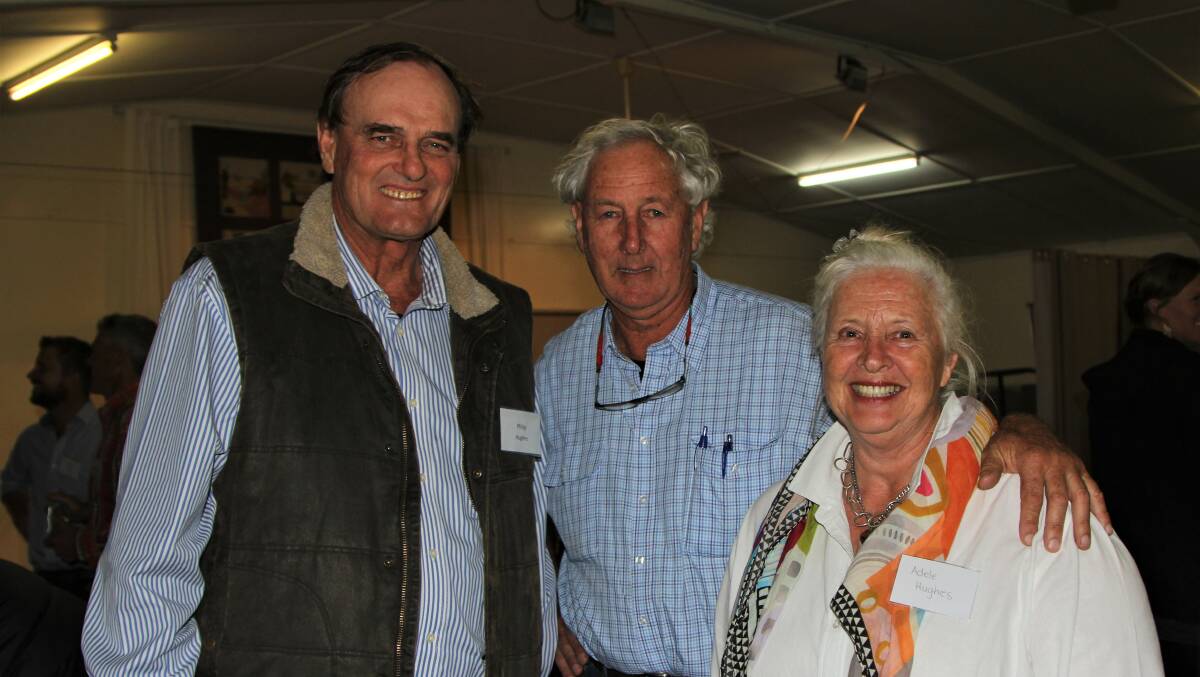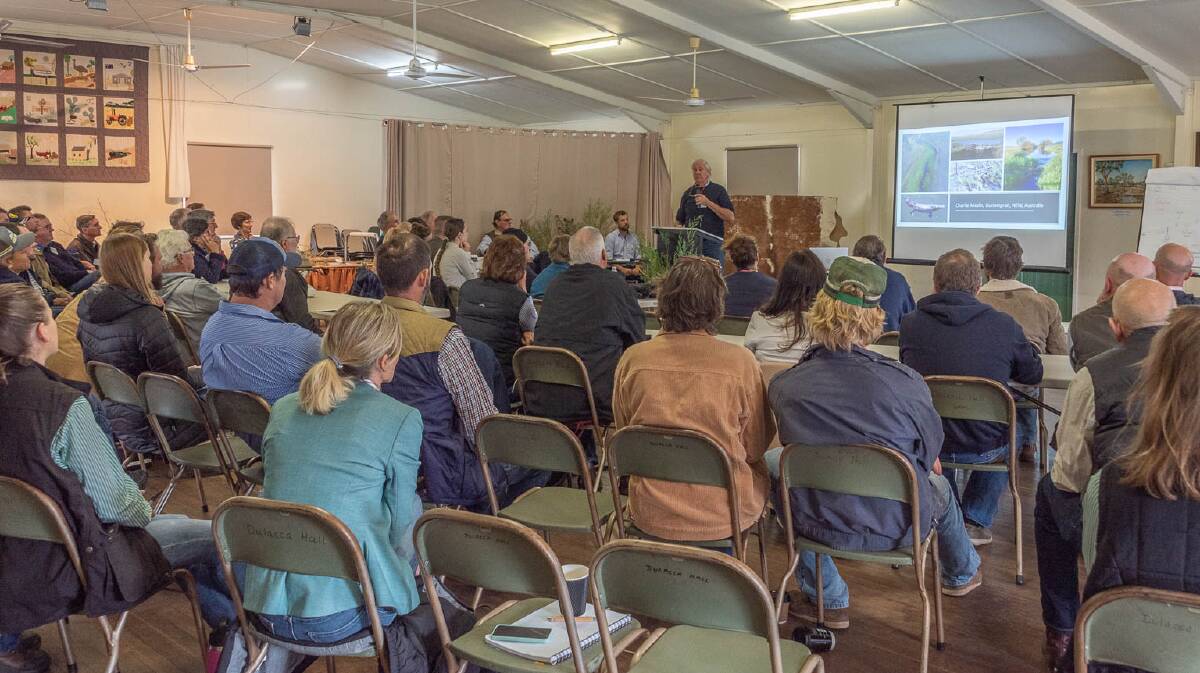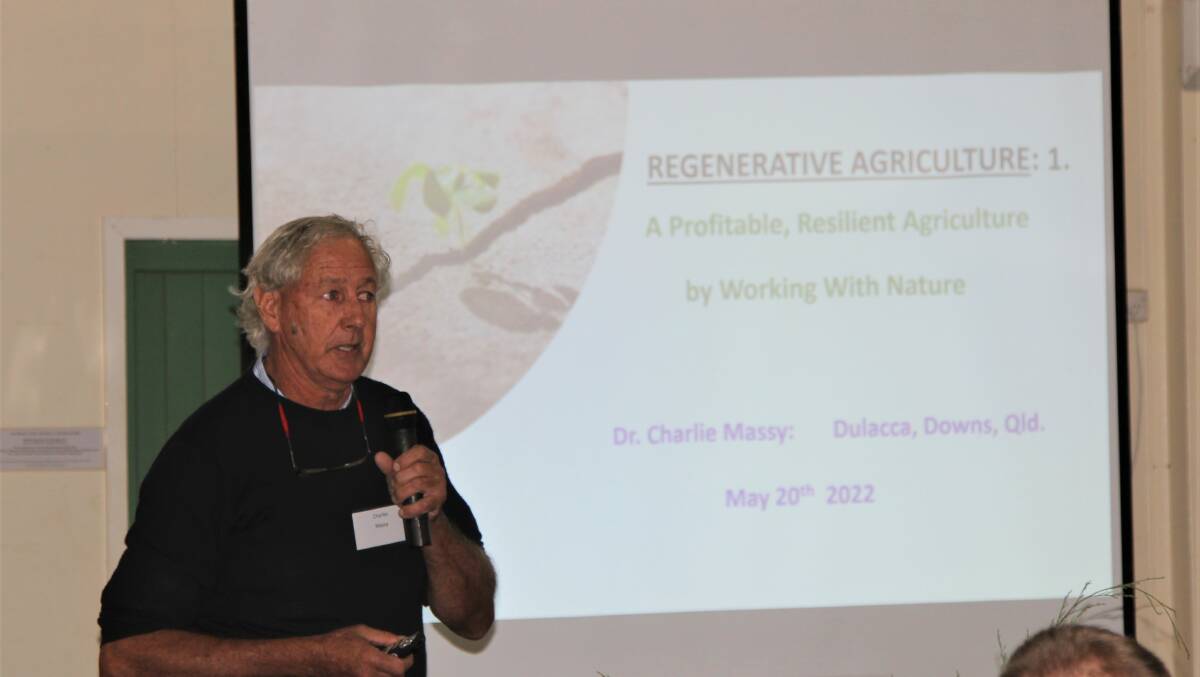
Connecting the next generation with agriculture, getting kids to roll round in the dirt to soak up biomes, and thinking of soil as a community rather than a commodity were some of the messages circulating Dulacca's town hall last Friday.
Subscribe now for unlimited access to all our agricultural news
across the nation
or signup to continue reading
The village on Queensland's western downs hasn't seen a crowd as large for a long time but Australia's regenerative agriculture pioneer Charlie Massy brought producers from many parts of the state keen to understand his concepts for more sustainable agricultural systems.
Around 90 people from as far apart as Longreach, Eromanga, Eidsvold, Texas and Hazelgrove in NSW packed the town hall for what was billed as 'a day of learning' with the Lachlan Hughes Foundation.
A Dulacca grazier before his death in an on-farm accident in 2018, Lachlan had a vision to develop regenerative agricultural practices for the nation's grazing lands, and the foundation works to make that vision reality.
Organisers said it was heartening to see the desire from people of all ages to understand the role that regenerative agriculture could play in restoring the planet, and people, back to good health.

Before a crowd largely composed of land managers, Mr Massy OAM, a well-known figure in Australia's sheep and wool circles as formerly a chairman and director of several research organisations and statutory wool boards, repeated his message that modern industrial agricultural practices had pushed the globe into a dangerous corner.
Pointing the finger at economic rationalism for its drive to make profits above all else, Mr Massy identified with his audience by planting a 'guilty' sign on his forehead for not understanding the impact of his decisions.
"I was a bad manager - I put my animals in front of my soils, and I ended up in debt," were his opening words. "I couldn't read a landscape, I was ecologically illiterate."
He went on to demonstrate how the well-established principals of rotational grazing mimic the natural world and how modern agriculture has destroyed it.
Beyond that, Mr Massy charted a path for agriculture to lead the planet back to good health, providing producers can change their mindset and allow the landscape to organise itself rather than try to organise it artificially.
"People are starting to think about systems rather than a legume we put fertiliser on," is how he boiled it down.

Also coming in for criticism were modern food production systems - narrow breeding goals, the over-processing of food, feedlots, and chemicals that act as bulldozers - and the tendency to select just for yield, to the detriment of nutrient concentration.
"We've got to change our mindscape before we change the landscape," he told the audience.
"Our role is to let the landscape function as it's designed to.
"Regenerative agriculture has the best solutions for the times we're in."
RELATED: Renewing a pastoral landscape
In response to a question on how to bring more people on board with regenerative agriculture, Mr Massy said costs would cause people to eventually rethink their operations.
He didn't shy away from questions on plant-based diets either, saying he didn't think the promoters of such diets were looking at true production systems but at artificial feedlot systems.
"That's why I showed the slides in Africa - that's where we evolved from," he said.
"Animals ate plants with lots of phytochemicals and minerals, and then humans ate them
"These people are trying to deny evolution. I think the movement is fostered by people who don't understand how our systems work."
ALSO IN THE NEWS:


